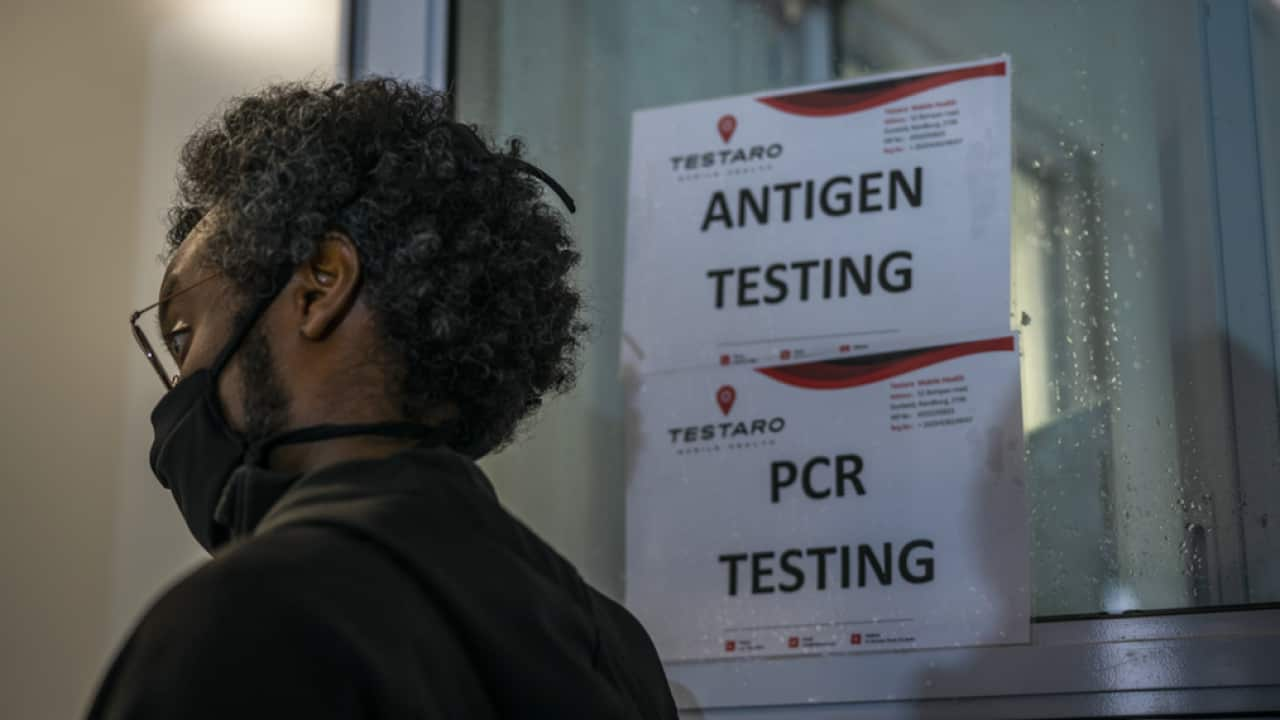

4 min read
This article is more than 3 years old
Explainer
Can you mix and match your COVID-19 vaccine and booster shot brands?
If you’ve had AstraZeneca for your first two COVID-19 vaccine doses, is it safe to have a Pfizer booster? And where does Moderna fit into things? Here’s the latest advice for people in Australia.
Published 9 December 2021 8:29pm
Updated 13 December 2021 7:57am
By Emma Lawson, Evan Young
Source: SBS News
Image: A man has his booster shot in Perth. (AAP/SBS News)
In the first months of Australia's COVID-19 vaccine booster program, the Pfizer shot was essentially the sole operator. But that’s no longer the case.
by the Therapeutic Goods Administration and the Australian Technical Advisory Group on Immunisation (ATAGI) for booster purposes.
Emily Edwards from the Department of Immunology and Pathology at Monash University said additional vaccines being introduced into the booster program was welcome news.
“The more vaccines that we have approved, the less supply chain issues that we're going to come across, which means that then we can keep up the consistent provision of vaccination to the community,” she said last week.
Updated ATAGI advice issued last week also said that booster doses instead of six, given the likelihood of ongoing transmission of the Omicron and Delta variants.
But would it be a good idea to get a Moderna booster if you haven’t had Moderna before, and more generally, is it safe to have a different brand of a third shot than your first two?
Is it safe to mix and match?
Health experts say the answer is yes.
“The scientific literature is saying that it is safe to mix and match vaccines,” Dr Edwards said.
“The evidence coming out is saying that there's no issue in having a booster that is different to what your two primary doses are.”
There are suggestions that having a different booster brand could even give you greater immunity.
Chris Moy, vice president of the Australian Medical Association, said “there’s a long history of being able to mix vaccines for the same condition, and in fact, possibly getting more bang for your buck in doing so”.
“But it doesn't really make a lot of difference. Basically, these booster shots all seem to do the right thing in terms of being able to drive up that immunity,” he said.
The advice is mostly coming from studies that compare mixing vaccines between the first and second dose.
But Dr Moy said the most important thing isn’t the brand of booster you get, but just getting one to begin with.
“I think we're quibbling about minor differences between the vaccines. All the vaccines are very good and they've all got their pros and cons ... but overall, these are very, very minor. It's the difference between an LG versus a Samsung versus a Sony,” he said.
“If people are worried enough they can shop around, but sometimes what's more important is actually to go get the darn injection in your arm.”
Anyone with concerns should seek medical advice, Dr Edwards added.
What about AstraZeneca?
AstraZeneca can be used as a booster for people who had it for previous shots and didn't encounter an adverse reaction, but it is not preferred.
Those who had a significant adverse reaction after a previous mRNA vaccine – the class of vaccine that Pfizer and Moderna belong to - could also use it.
“It can be used as a booster, but only in rare circumstances and only for people that had AstraZeneca for the first two shots,” Dr Moy said.
How many people have had boosters so far?
As of Thursday last week, more than 600,000 people in Australia had already received a booster shot.
A survey by the Australian National University released on Thursday found 70 per cent of respondents would ‘definitely’ be receiving a booster shot.
Twenty-two per cent of respondents said they would ‘probably’ get one, 4.7 per cent said they ‘probably wouldn't’, while 1.3 per cent said they ‘definitely wouldn't’. Conducted during October, the research found a factor behind the hesitancy of others was concern around vaccine inequality.
Nationally, more than 88 per cent of over-16s have had two doses of a COVID-19 vaccine, while 93 per cent have had one.
This article was originally published on 9 December 2021 and was updated on 13 December 2021.
For a more comprehensive look at boosters, including what we know about their effectiveness against the Omicron variant and how to book a booster shot, .


